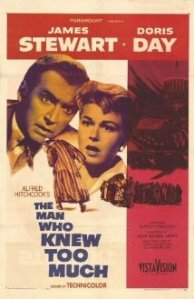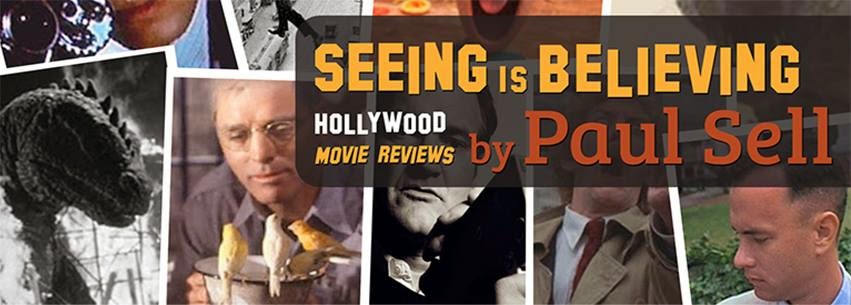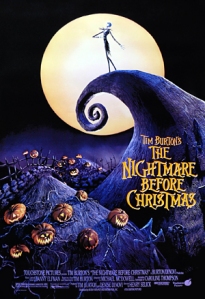This may seem like the most simple of questions - What constitutes a movie? When does a collection of images and frames suddenly become more? Or does it just need to be more than one shot put to celluloid?
I ask this question, because there have been videos recently that have disputed the idea of what a movie is, particularly my short review of "Dr. Horrible's Sing-Along Blog." This 44-minute musical directed by Joss Whedon and starring Neil Patrick Harris, has garnered critical success and cult following, especially from fans of Whedon's work on both the small screen ("Buffy The Vampire Slayer") and the big screen ("The Avengers").
But does it count as a film?
To understand, we must go to the basics of cinema and realize exactly what film was in the beginning - moving pictures. What separates a movie from a photographic still is that a movie is a combination of stills, about 24 stills per second in fact, which gives the film the illusion of movement, much like a flip book.
The first recorded instance of a moving picture was accomplished by the Lumiere Brothers in 1895, as they filmed a shoe factory's work day ending and the hundreds of employees leaving the building, as well as another instance where they filmed a train coming right for the camera. It has been said that when many people viewed this for the first time, they jumped out of their seats because they were afraid the train would jump off the screen and hit them.
As the years went on, cinema evolved as filmmakers got more crafty and intelligent. In 1902, "A Trip To The Moon" used sets, tinted lenses and background actors to show that the cast had traveled to a far off land that was once thought impossible. In 1903, "The Great Train Robbery" was one of the first films to use editing to show multiple sets of action to heighten drama and suspense, as well as one of the first to tell a flowing narrative through celluloid.
Artistic movements would occur, like the German Expressionist era, which would give us many of our basic horror films like "Nosferatu" and "The Cabinet Of Dr. Caligari," and lead to the many films of Alfred Hitchcock and the Universal horror films. Later on, technology was developed to give us both sound and color, launching us into an era where films could be as close to life as possible.
This has been brought up to raise a question - With all the technological advancements and filming techniques since the creation of cinema, would you now consider those moving pictures by the Lumiere Brothers a movie by today's standards?
As film has evolved, so has our perception of what a movie is. When it started, anything that moved was cinema. Then D.W. Griffith gave us the three-hour long snoozefest "The Birth Of A Nation," which made us realize that film can tell an overarching narrative that has many sides and perspectives, even giving us a glimpse of history. It changed again when "The Jazz Singer" was released and we could finally hear the characters talk and sing.
Fast forward to the present day, where we can watch movies and television shows on our phones and computers, download movies without needing to buy a ticket or get a physical copy of it, shows and movies are constantly being produced by online companies like Netflix, and fundraisers to help filmmakers create their work are just a click away.
Times have changed, and so has the definition of cinema.
The American Film Institute has very basic requirements as to what constitutes a movie - It must be produced for the screen, and has to be at least 60 minutes long. If it was created for television or a website, it does not count.
I agree with this ideal, as internet content and TV are two different mediums from cinema. When you think of a film, the first image that comes to mind is probably that gigantic screen with an auditorium full of seats and a projector in the back.
Videos made for the internet, while undeniably entertaining, addictive and enthralling, are often made by one guy/girl who just so happened to have their camera on at the right time. While television is episodic and often has time restraints due to programming and scheduling.
It makes sense that a movie must be made for the big screen to separate it from other forms of entertainment.
However, I do not agree with AFI on the other need of being at least 60 minutes in length. If we went by that strict definition, then wonderful pieces of film like "Duck Soup" and "Detour" would not be considered movies. Much of Charlie Chaplin's early work would be unqualified, as well as many other silent films.
If we are to commit to a definition of a movie, then it must be something that works for the history of cinema, not just the films of today. All of the works of film art that I've mentioned have altered the way we perceive the moving picture, in both big and small ways, even if they are now unseen ways.
"Battleship Potemkin" was the first film to use montage, but the common movie-goer does not know that. They just see a montage and accept it as a part of film. Without that iconic use of editing and framing, we would not have the haunting ending to "The Godfather" or the classic shower sequence in "Psycho."
It would be a shame to say that any piece of film under 60 minutes does not qualify as a film, when there are so many exemplary pieces of cinema.
So, to ask again, what constitutes a movie? I believe that the American Film Institute is on the right track by saying it must be produced for the screen, but the length of the picture is irrelevant. Films like "A Trip To The Moon" and "The Great Train Robbery" proved that all you need is seven minutes to entrance your audience and tell a story of traveling to other planets or bandits attempting to outrun the authorities.
The allure of cinema isn't about how long you're sitting in a movie theater, but that you've been transported from your normal life and feel like you are apart of a new journey to another land. It is about finding those characters and people that you connect with, or you don't connect with but are fascinated by nonetheless. It is about seeing life through the lens of a camera, being directed by countless people and their attempts to struggle and understand humanity.




































